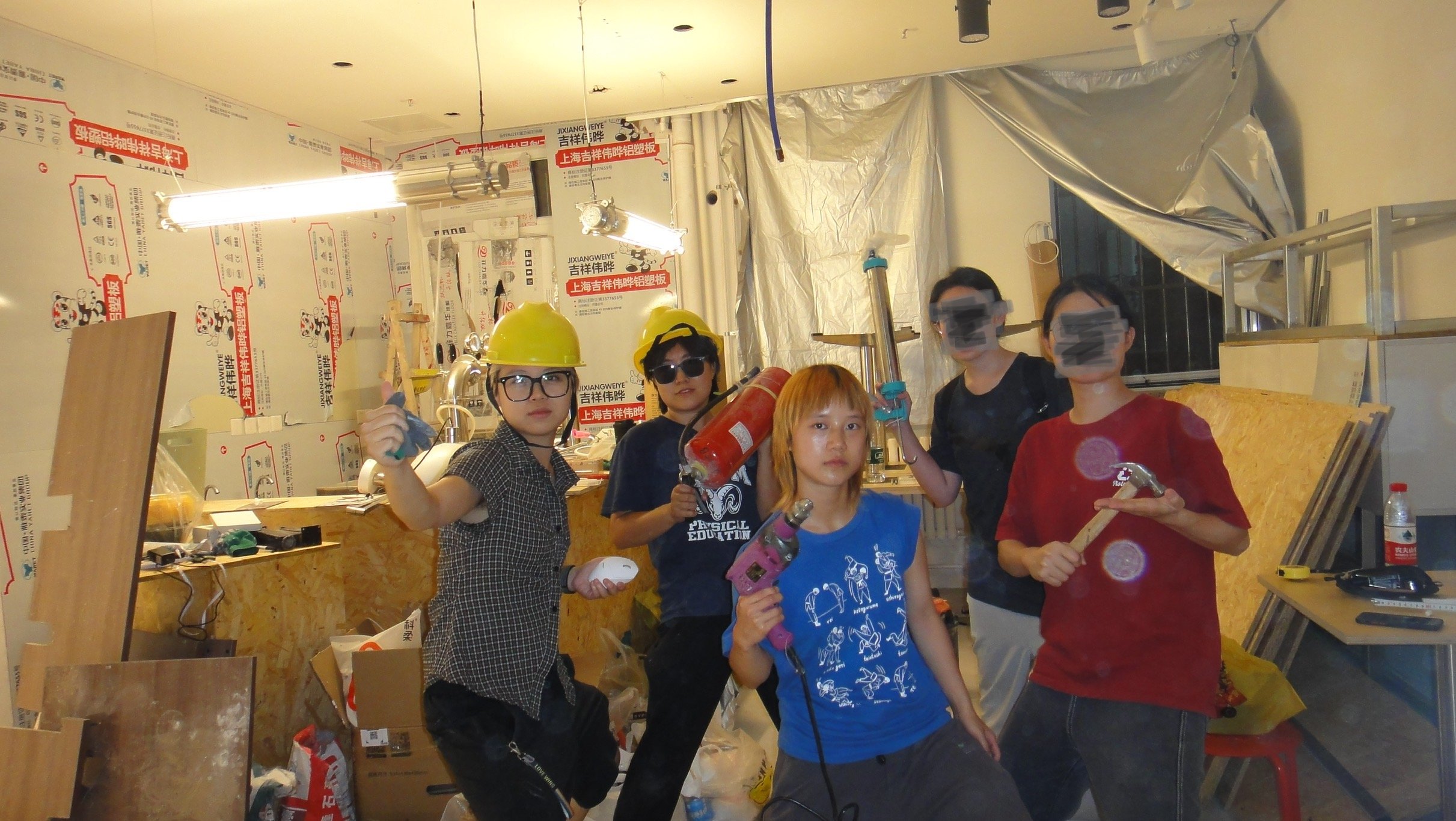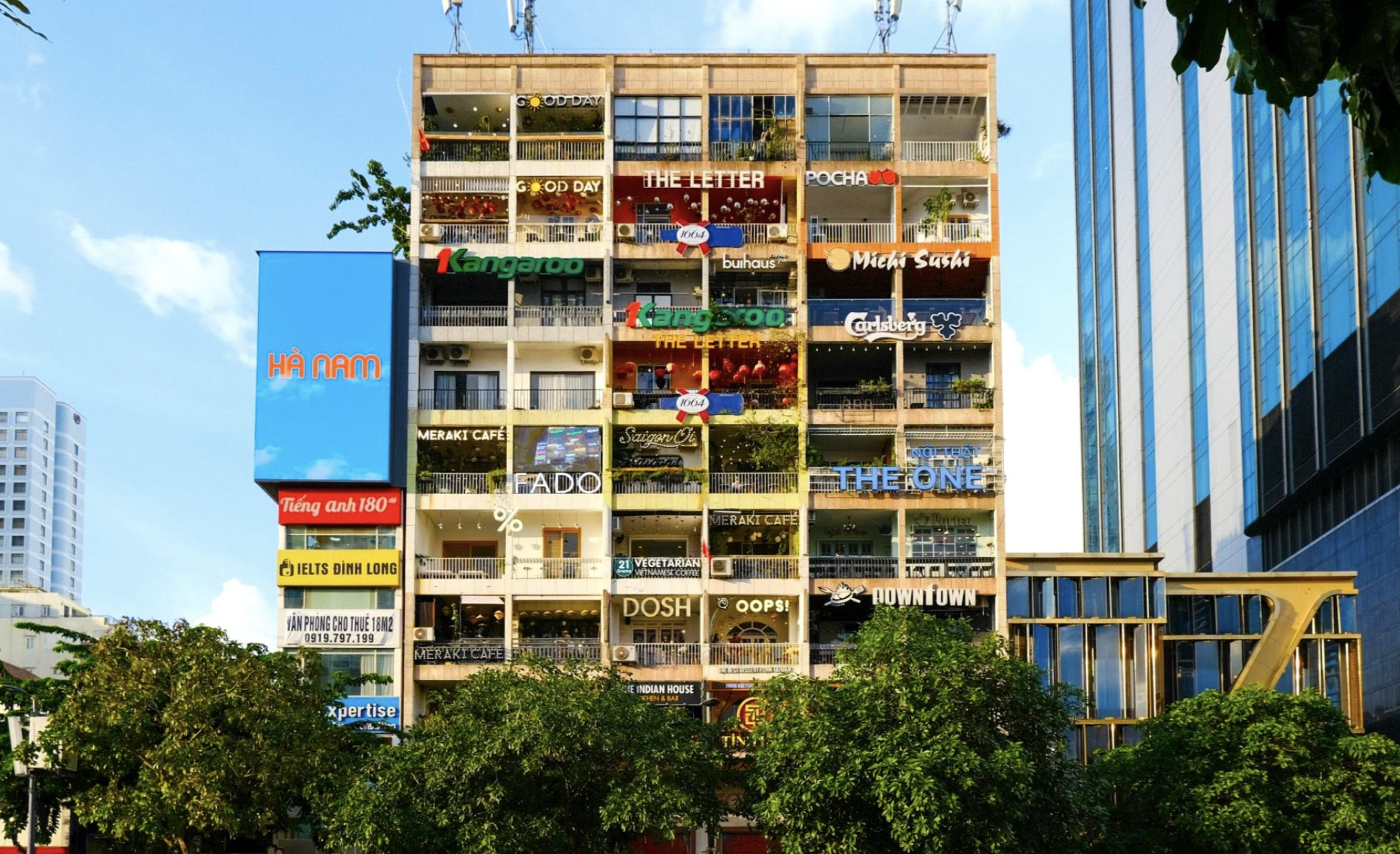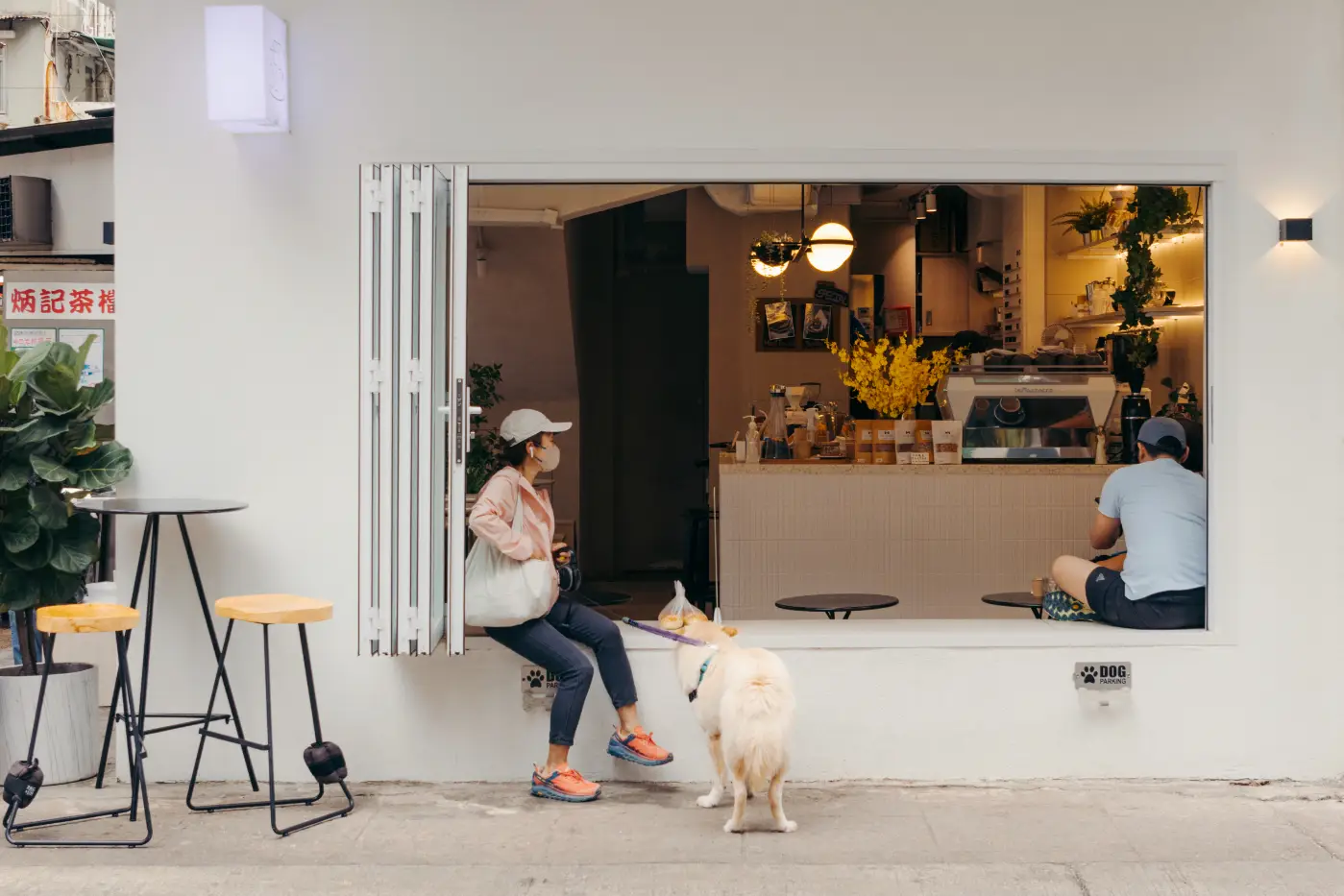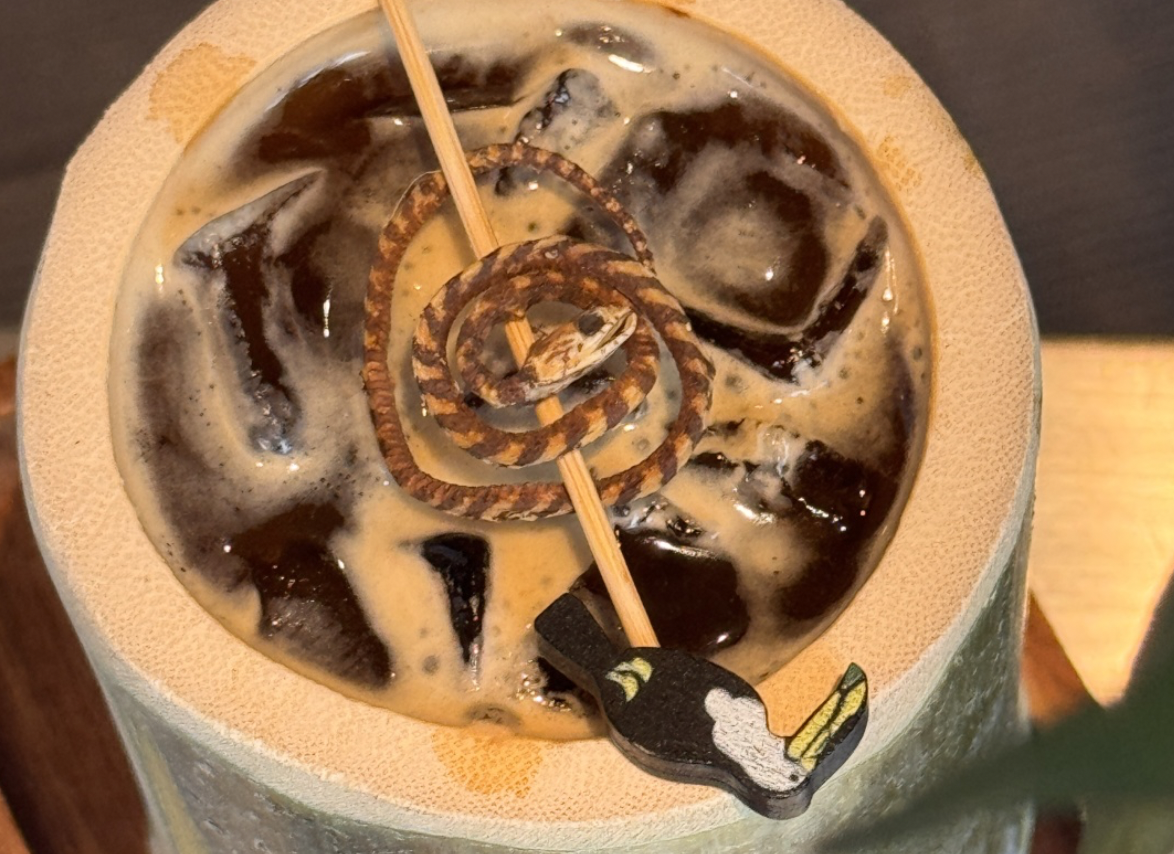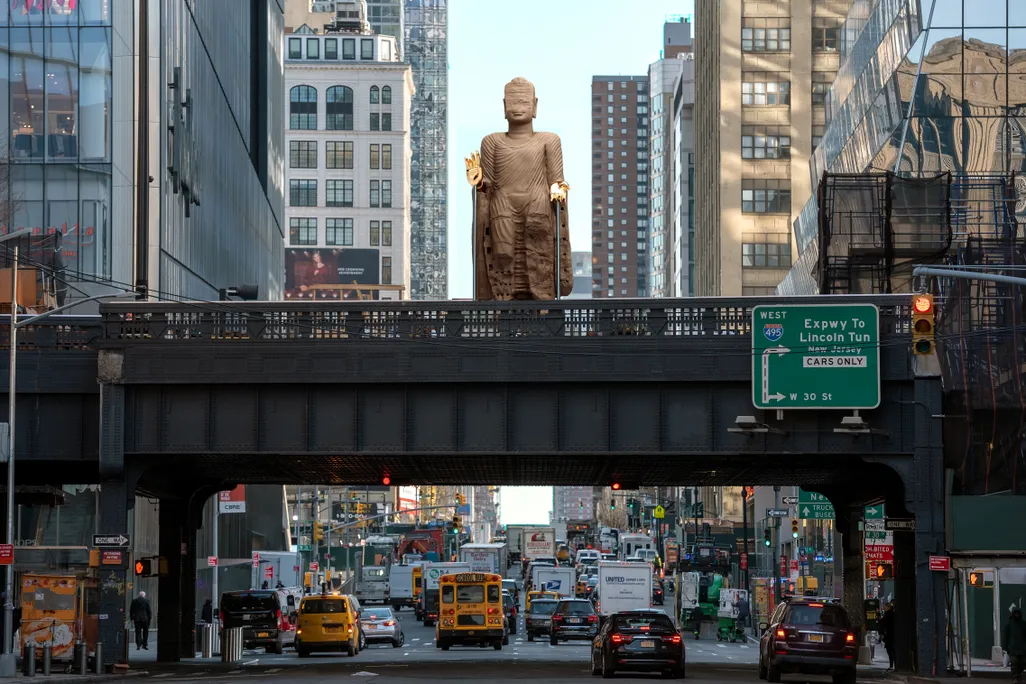Step inside a Starbucks in Hangzhou, and you might expect the familiar aroma of espresso and a sleek, modern aesthetic. But the newly opened Intangible Cultural Heritage (ICH) concept store on Hefang Street offers a visual feast that transcends the typical coffee experience, transforming a nearly century-old building into a vibrant homage to local craft. Here, the global coffee giant isn’t just serving lattes; it’s imbuing ancient traditions into its very fabric.
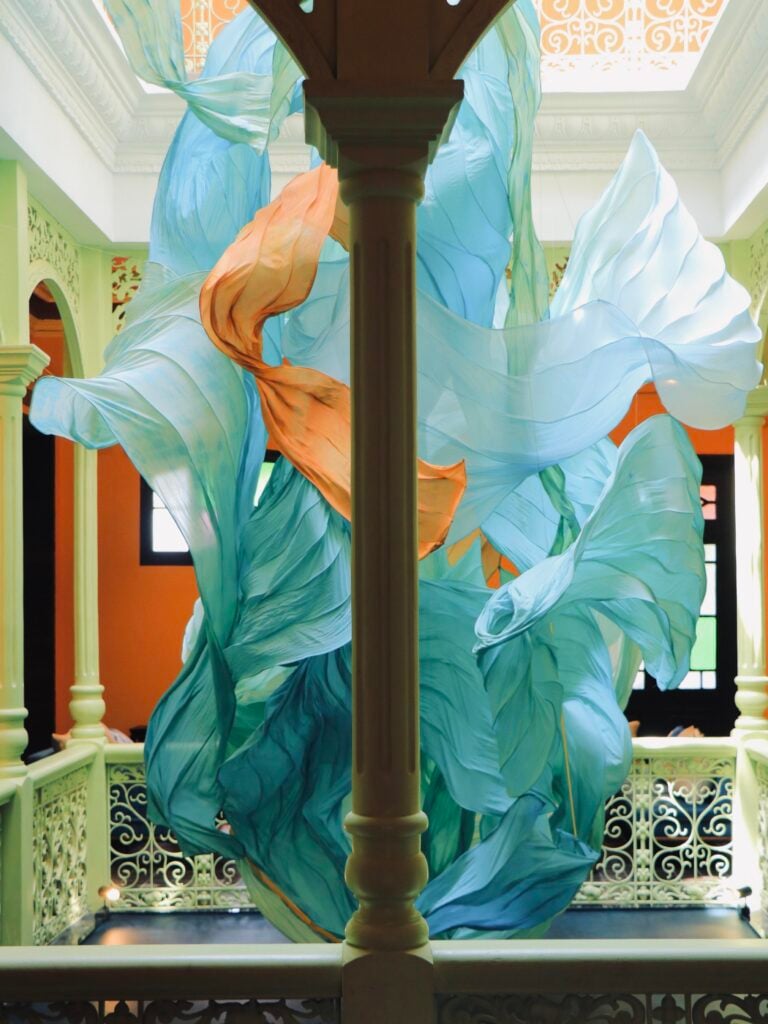
This isn’t just another Starbucks opening; it’s the fifth ICH concept store in China and the first in Zhejiang Province. At its heart is the exquisite “Hangzhou Leno” (杭罗, hangluo) weaving technique, a sophisticated silk craft that dates back centuries and was officially recognized as a national intangible cultural heritage in 2008. Housed within the historic Zhang Yunsheng Department Store, a landmark built in 1926, the location itself tells a story, making the integration of Hangzhou Leno all the more poignant.
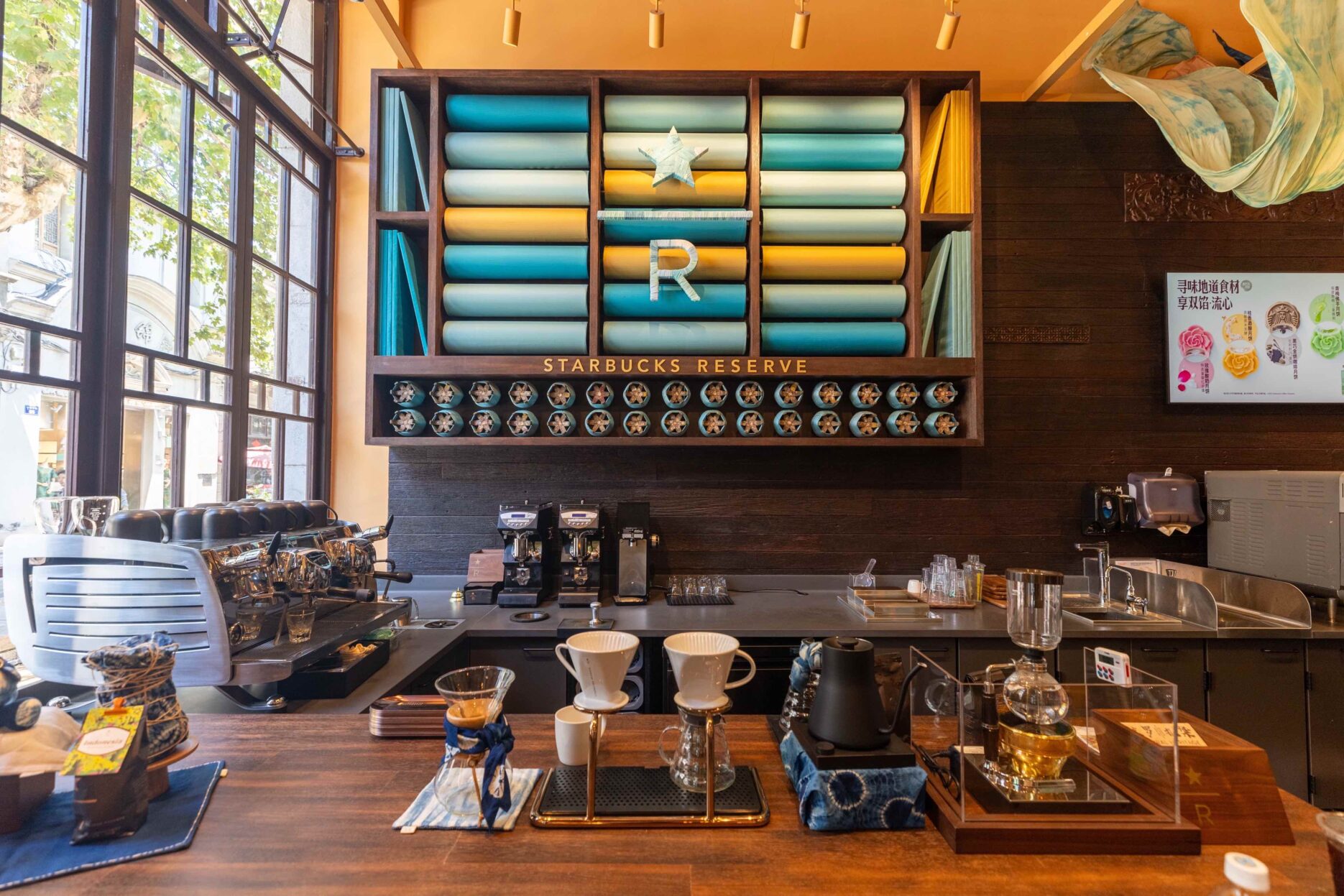
Starbucks’ venture into ICH isn’t just clever localization; it’s a shrewd understanding of China’s evolving youth culture, particularly Gen Z’s increasing pride in and curiosity about traditional Chinese heritage. This hyper-local approach allows a massive international brand to connect deeply with local identity, moving beyond mere product offerings to create a “third space” that is both globally relevant and distinctly Chinese.
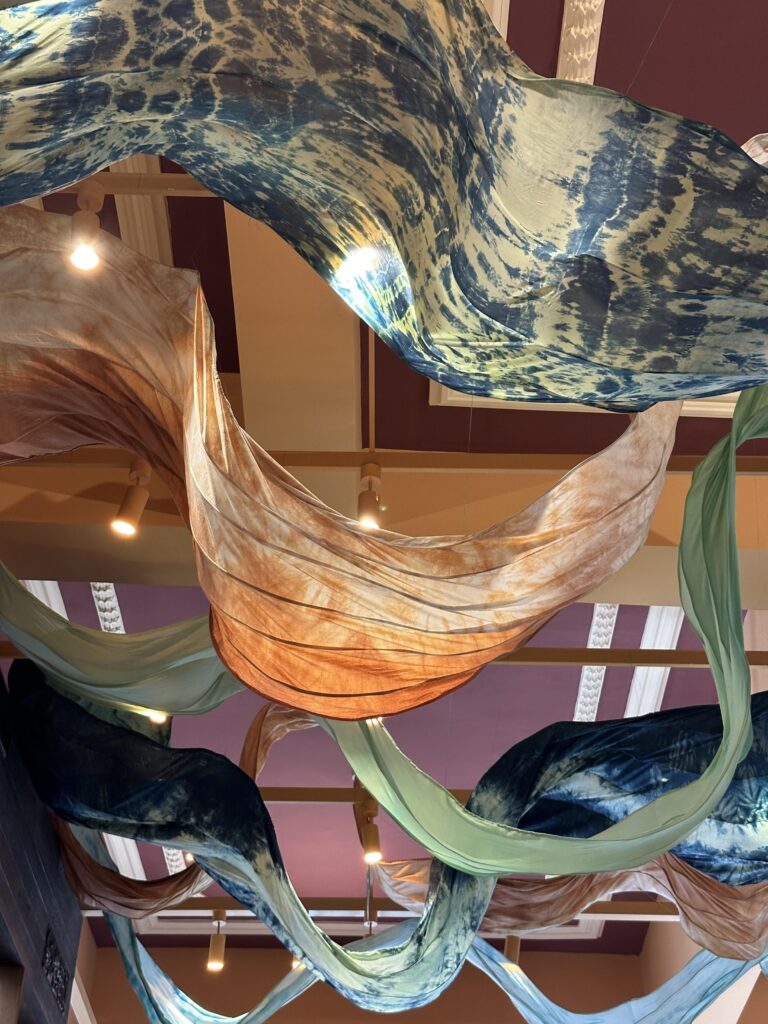
By collaborating with inheritors like Hong Guizhen and her Fuxing Leno team, alongside young artists and even a Bai tie-dye inheritor, Starbucks elevates traditional craftsmanship from museum pieces to living, breathing art, accessible within the daily ritual of coffee.
The store, which serves as one of the brand’s Reserve locations, features stunning textile art installations and invites visitors to learn about the contemporary spin on this ancient craft. Beyond the visuals, exclusive Hangzhou-inspired matcha drinks and special merchandise further solidify this cultural embrace, extending Starbucks’ broader public welfare projects aimed at preserving ICH and supporting traditional techniques.
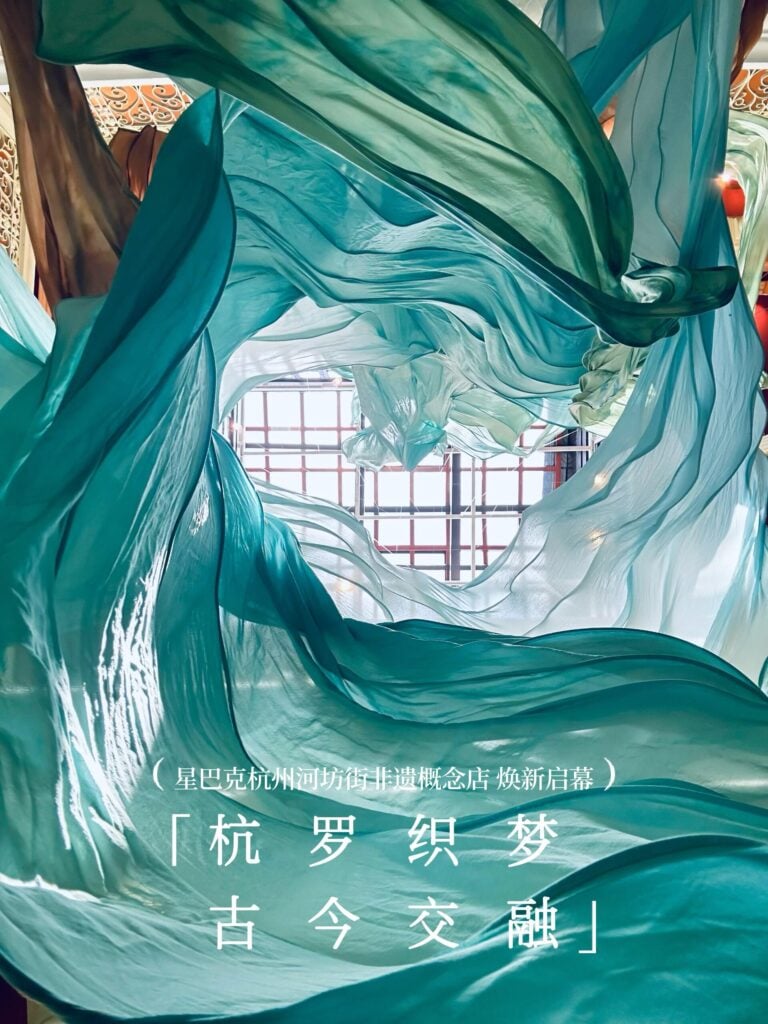
In a market teeming with local and international competition, Starbucks‘ ICH stores pose a compelling question: Can the future of global branding in China lie not in simply adapting, but in actively celebrating and revitalizing the very essence of local culture? For now, it seems the answer is brewing beautifully in Hangzhou.
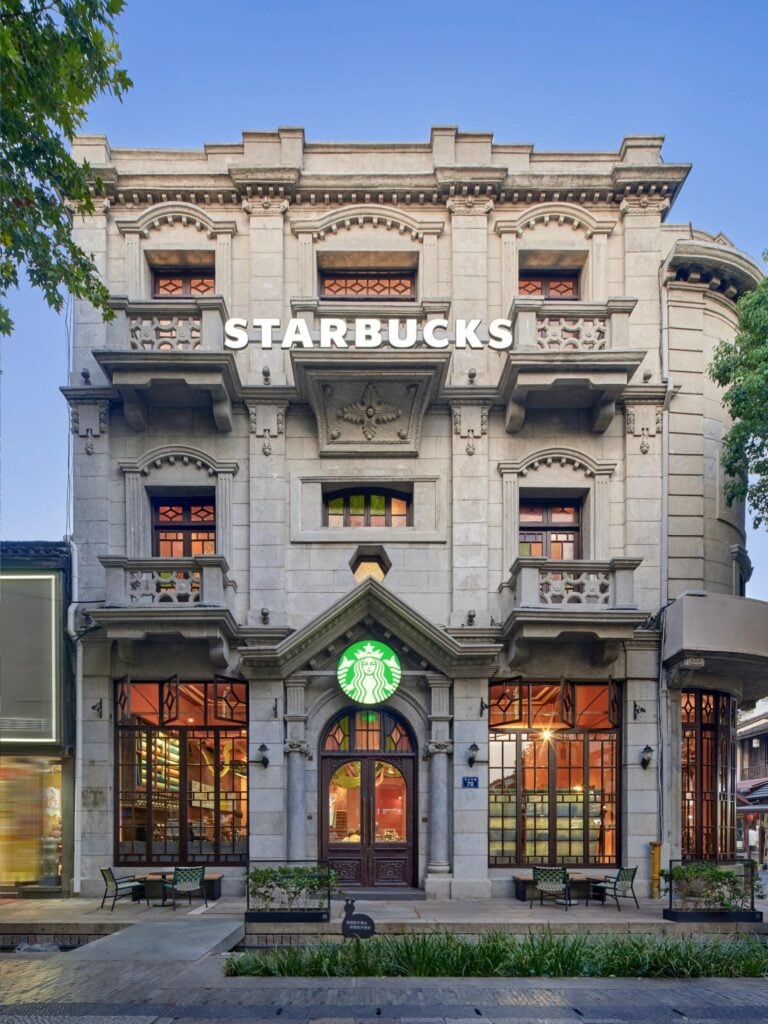
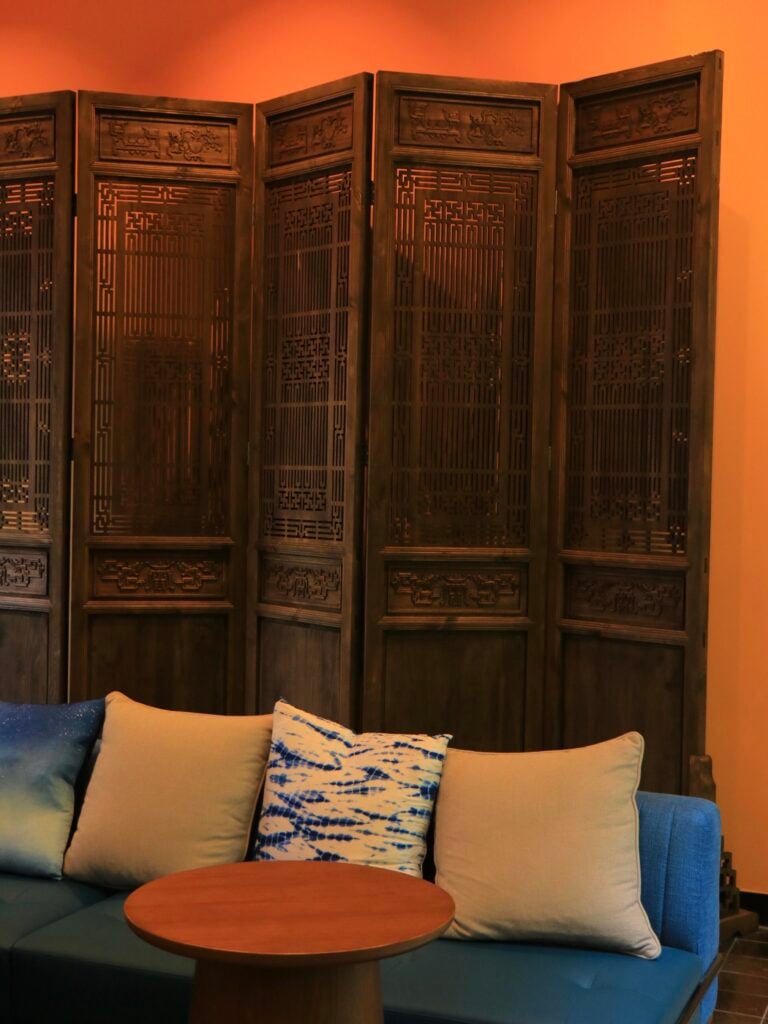
All images via Dao Insights.




